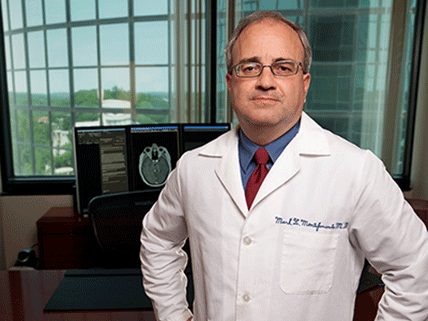Hospital Exec Pens Plea for Government Protection from Competition

If you want to open a new medical office in Virginia, or even just purchase certain types of high-end medical equipment, you have to get permission from the government. The state is one of 36 that requires medical providers to obtain a "Certificate of Need" (CON) in order to perform medical services, and its rules are among the most restrictive in the nation.
Obtaining a certificate of need is a major hassle, and there's no way to predict in advance whether you'll qualify.
As the Institute for Justice, which in 2012 launched a challenge to the state of Virginia's CON law, explains in a backgrounder on its case, first you have to fill out a lengthy application and pay fees that average $20,000. Then a state planning board has to hold a public hearing. After that, you might have to sit through an official fact-finding conference, typically because some existing, already licensed medical provider, has complained about your application. The process typically takes a least six months if there are no hiccups. But it can take a lot longer, and it often does.
Finally, when it's all over, the State Health Commissioner decides if you'll be granted the CON based on a set of 20 factors that essentially exist to provide a pretext for saying "no" if that's what the Commissioner wants. The whole process is arbitrary, expensive, and needlessly burdensome.
You might think that this is the sort of licensing requirement that local health providers would hate. In fact, large incumbent health care players tend to support these rules, because they exist almost entirely to protect existing businesses from new competition.
Those incumbents tend to struggle to justify the rules any other way. An op-ed by Michael McDermott, the CEO of Mary Washington Healthcare, defending Virginia's licensing requirement mostly serves to show how weak the case for the law is. Some of what he argues is beside the point (licensing ensures readiness for disasters), and some of it is more misleading.
McDermott, for example, argues that the requirement is needed to protect the ability of Virginians to "receive access to essential health care services" and ensure "that when we access that health care it is safe, well-regulated and of the highest quality."
But Virginians are actually losing out on access to innovative medical services thanks to the state's Certificate of Need requirement. As the Institute for Justice notes in its backgrounder on the issue, the state, via a Certificate of Need denial, prohibited Dr. Mark Baumel from purchasing new CT scanners with which to perform what's known as an "integrated virtual colonoscopy"—a process that combines a non-invasive virtual screening with an immediate follow-up. The certification rule ended up restricting access, not preserving it.
And according to Robert McNamara, an Institute for Justice Senior Attorney working on the organization's challenge to the rule, there's little evidence suggesting that licensing requirements ease access to care.
"The vast bulk of the evidence shows that they don't do any good at all," McNamara said in an email. "States like Arizona, California, and Texas (among many others) get by with no medical CON requirements at all—and that anything the state wants to accomplish (whether it's improving access to care or any of the other goals sometimes trotted out to defend these programs) can be accomplished much more directly without a CON requirement."
McDermott's warnings about safety are just as problematic. Baumel's integrated colonoscopy service, for example, is already performed safely elsewhere in the country. Really, the certificate of need awards process has nothing to do with medical safety or oversight; if a CON is granted, health care providers still have to meet all the state medical safety requirements and health professional licensing. This is a separate license just for opening a facility or installing certain new equipment. Indeed, in some cases, the state has denied CONs to providers because other medical facilities nearby already have the same equipment, even if they don't offer the same services, on the theory that those existing providers could offer the new services if they wanted.
Virginia's Certificate of Need requirement isn't about safety. It's not about access. Like so many licensing requirements, it's about protecting incumbents from competition.
So far, sadly, the courts seem willing to let the requirement stand. A federal judge in Virginia ruled in favor of the law last November. An appeal is already in the works, according to McNamara, with opening briefs due in March.


Show Comments (15)